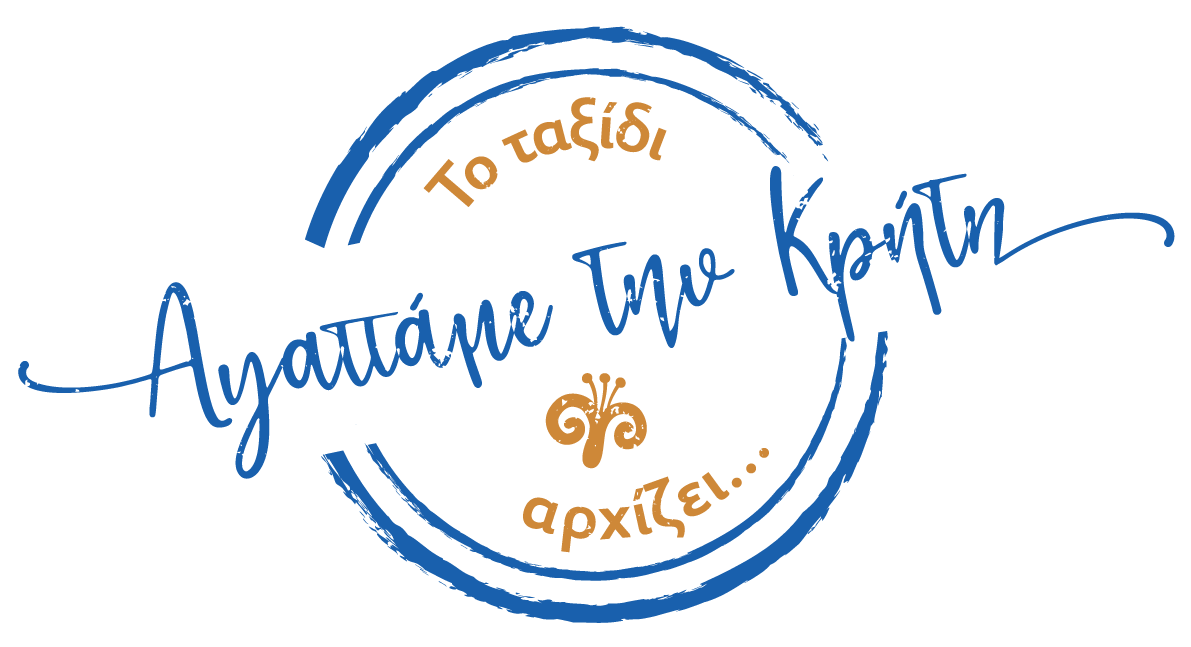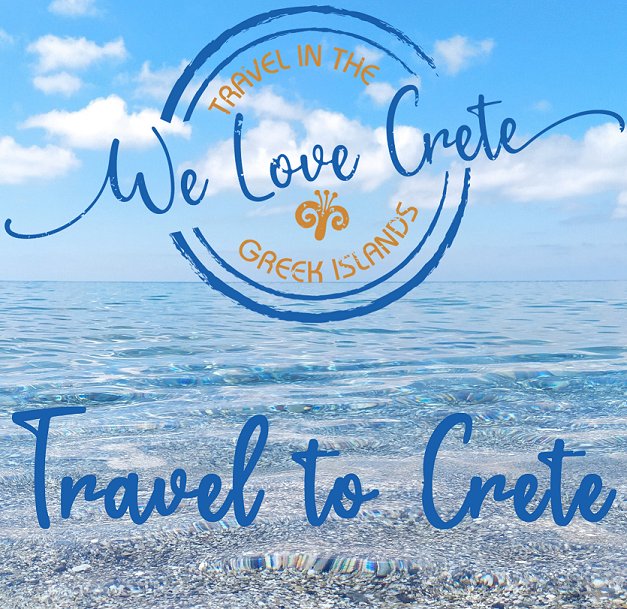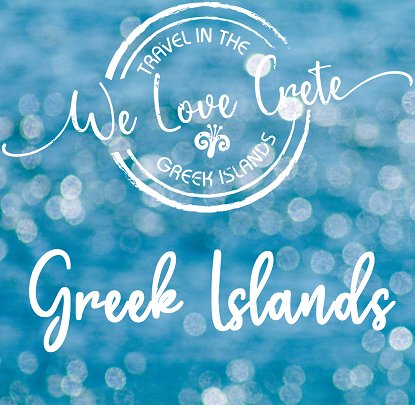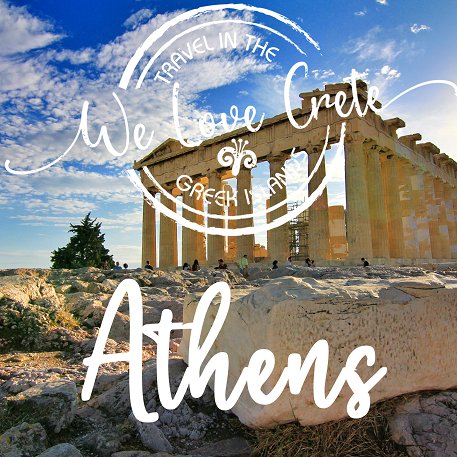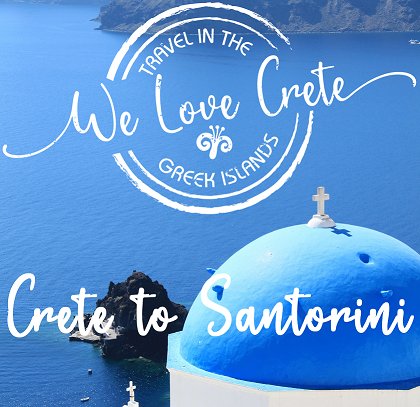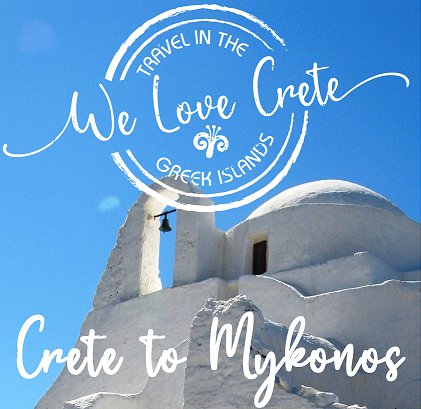This page may contain affiliate links, see our disclaimer here.
Vritomartis
A Mythical Cretan Goddess
By Katia Luz
Vritomartis Βριτόμαρτις has many names.
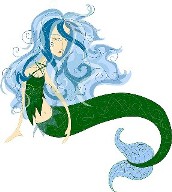
She is the beautiful mermaid spirit or Goddess, or the real mermaid, or nymph or Βριτόμαρτις or Dikte, Diktynna or Δίκτυννα, depending where your beliefs take you...
Cretan Mythology can be seen as distinct from Greek mythology, however in the study of King Minos, Ariadne, Britomartis and many other Gods and Goddesses, the distinction over thousands of years has become blurred.
Minoan civilisation began as far back as 5000 BC on the island of Crete. So there is a lot of history and storytelling and myth; truths and half-truths and forgotten wisdom that accompany these tales. Her stories appear as early as Homer's writings.
The stories of Britomartis go something like this.
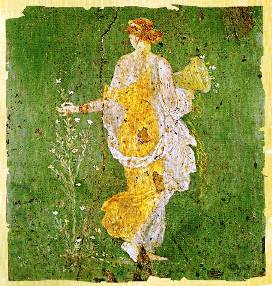
"She was a nymph, she was the daughter of Dictynna or she was Dictynna, or she invented hunting nets which are called diktia. She was called the Nymph of Gortys.
She was the daughter of Zeus and Karme. Or she was the daughter of Ariadne. She came from the town of Gortys in Crete or from Tarra.
She was a Minoan Goddess of mountains and hunting.
She was alluring and beautiful and was desired by King Minos. Some say she ran and hid from King Minos and in an attempt to escape him, she fell into the sea, but was caught in fishermen’s nets and saved. To show her gratitude she became their protector.
Some say she fell from Mount Dikti, the highest mountain in Eastern Crete, and was thus named after that mountain.
She was known as the 'Lady of the Nets'.
Some say she fled from Crete to Aegina where she was known as Aphaia and worshipped as a local deity for fertility and earthly cycles".
In Minoan seals, coins and rings she is shown with a demonic nature, carrying the Cretan double-headed axe and followed by wild animals.
What we do know is that she was found on coins discovered in the drowned city of Olous, which is now in the Bay of Elounda, and can be visited by snorkelling, much like a mermaid, in that beautiful bay.
Who is to know the truth? And who is to know and what imagery will touch our hearts now in this modern time, perhaps when we take some time out to swim in the beautiful blue waters of Crete, if we are really quiet and alert, we might see a mermaid swimming by in the crystal clear waters, and if we are lucky, we could ask her.
Greek & Cretan History & Mythology
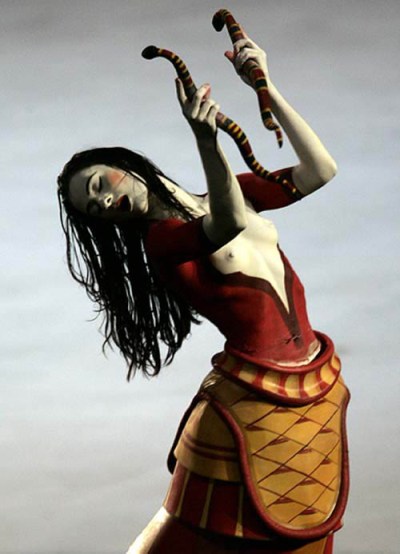
This figurine dates from 1650 BC and was found at Knossos, just 5 km from modern Heraklion town. It can be seen in the Heraklion Archaeological Museum.
The island is full of stories for history buffs and lovers of Greek and Cretan Mythology. There are many theories about the Snake Goddess, who was a Minoan Goddess. Minoan goddesses or dancers in a female worshipping culture, are little known. Britomartis came after this culture, during the Hellenistic period.
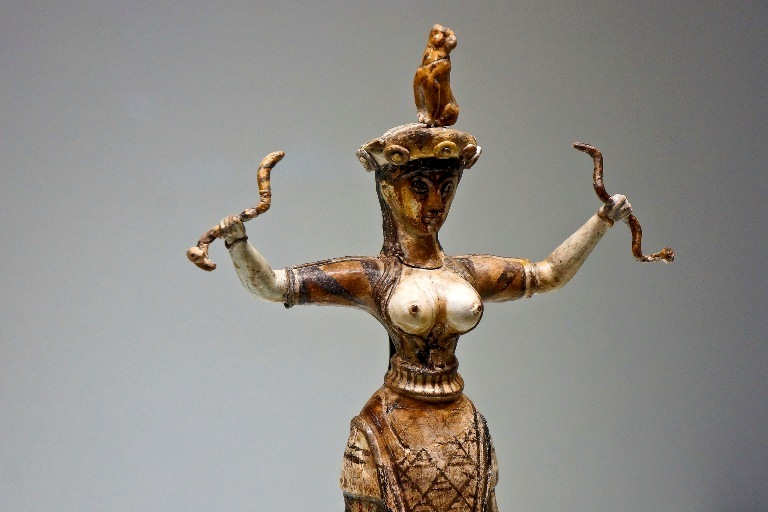
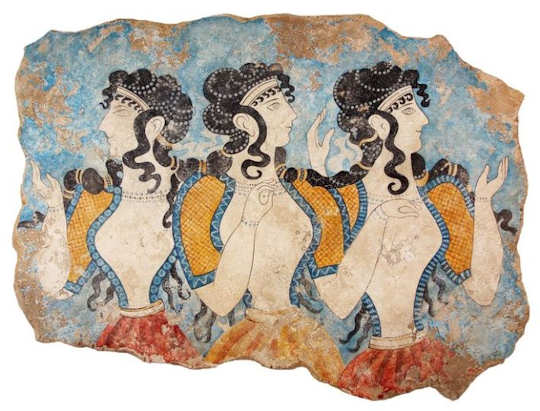
- More about the history of Crete
- More about Minoan History
- More about King Minos
- More about Knossos, mythic home of the Labyrinth
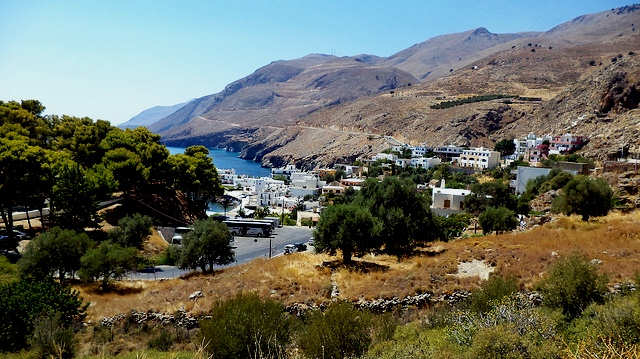
The village of Chora Sfakion is also known as Sfakia
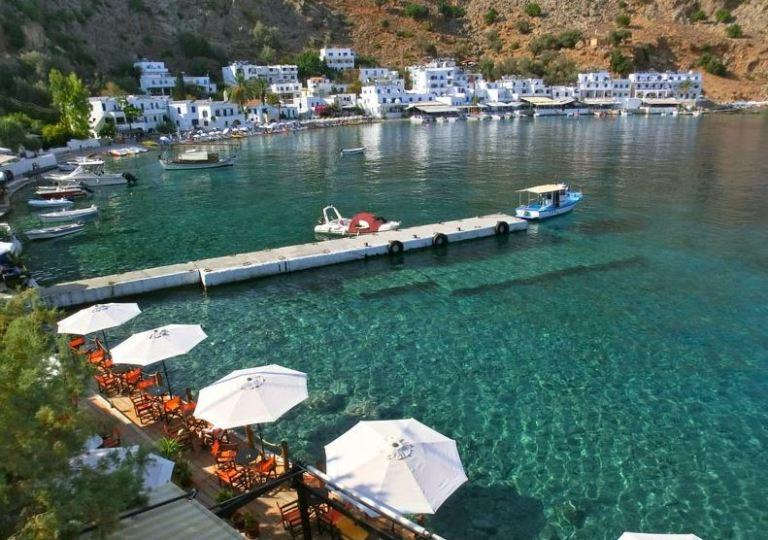
Visit the white and blue seaside hamlet of Loutro by boat or ferry, or walk in from Chora Sfakion.
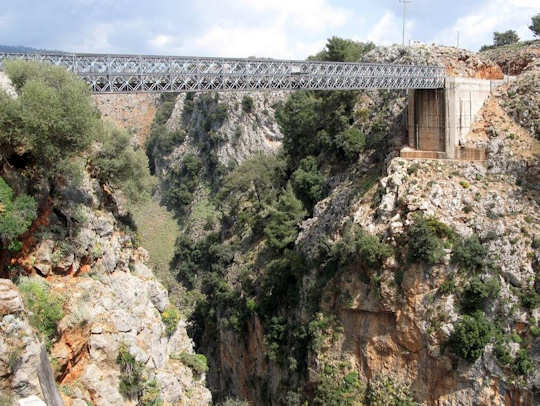 Aradaina Gorge, Crete
Aradaina Gorge, Crete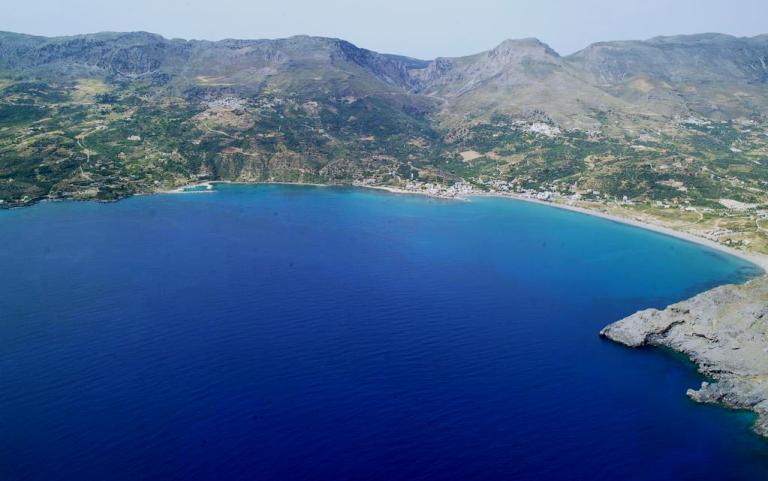 Plakias Bay
Plakias BayGetting Here
To see more seal stones and coins of ancient Crete, Goddess artwork of the Minoan cultures, and of the Hellenistic and Roman periods, visit the museums in these capitals:
- Heraklion Archaeological Museum - Cnr of Xanthoudidou and Hatzidaki Streets in Heraklion town
- Rethymnon Archaeological Museum - Chimarras, Old Town
- Chania Archaeological Museum - 28 Chalidon Street, Chania town
Car hire in Crete is a really good idea as it is a large island 60 km by 260 km. There is so much to explore.
When you book with our car rental partners - Rental Centre Crete - you are supporting a local company with excellent service and easy online booking. We are sure you will be well looked after by the team. Choose from hybrid, electric or regular vehicles.

We trust you have enjoyed these tips from the We Love Crete team. Evíva!
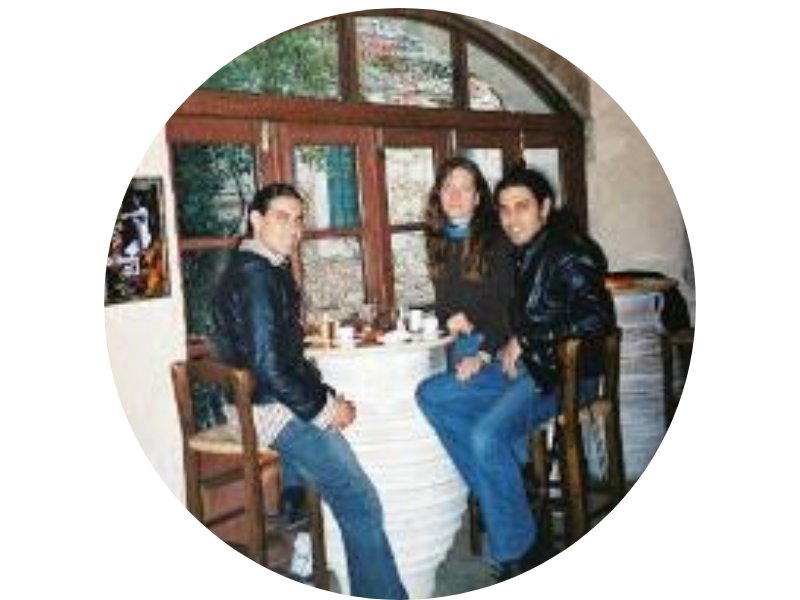
Yiásas!
Anastasi, Apostoli & Katia
are the We Love Crete team
We just love sharing our passion for Crete, Greece and travel
About us Contact Us Kaló taxídi!
- Home
- Crete History
- Vritomartis
About the Team
Yiásas!
Anastasi, Apostoli & Katia
are the
We Love Crete team
We just love sharing our passion for Crete, Greece and travel
About us

